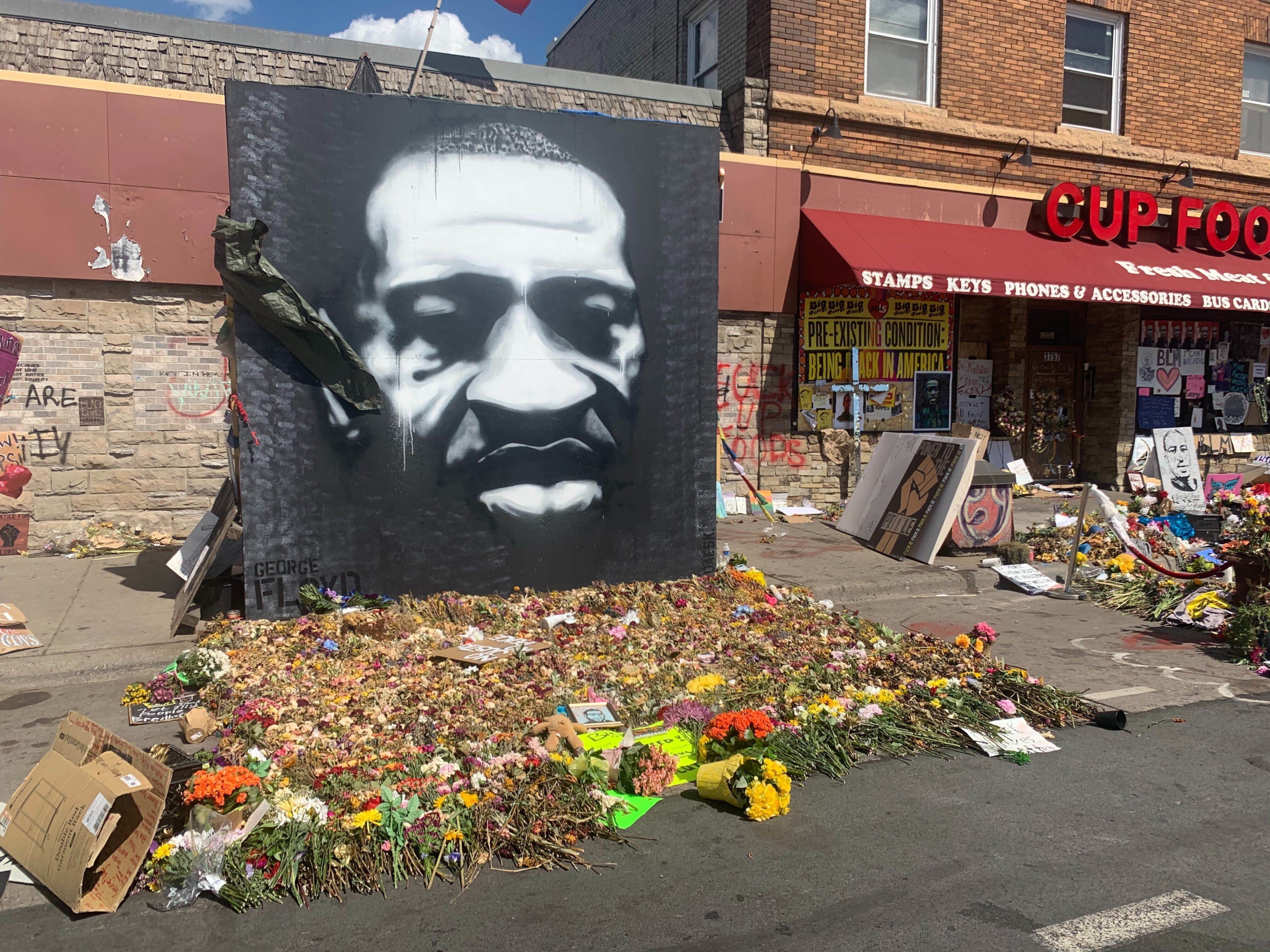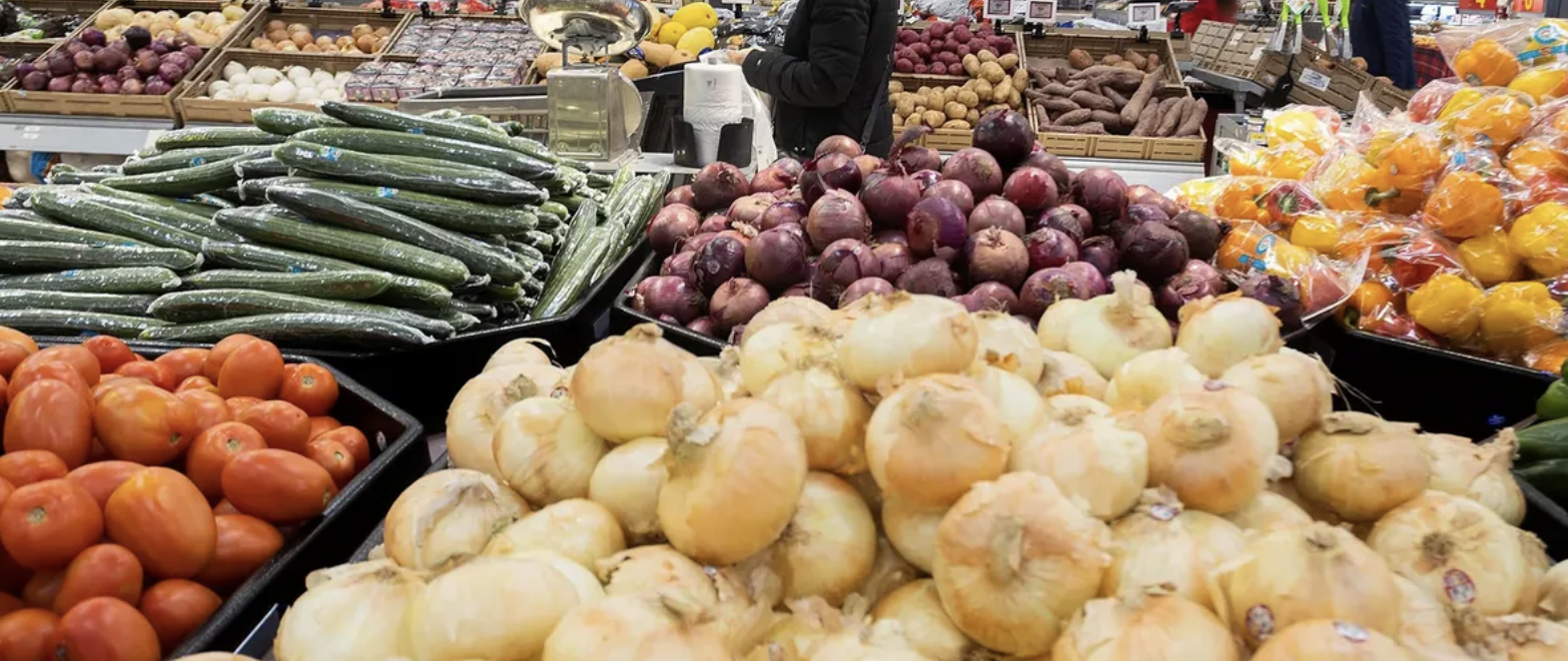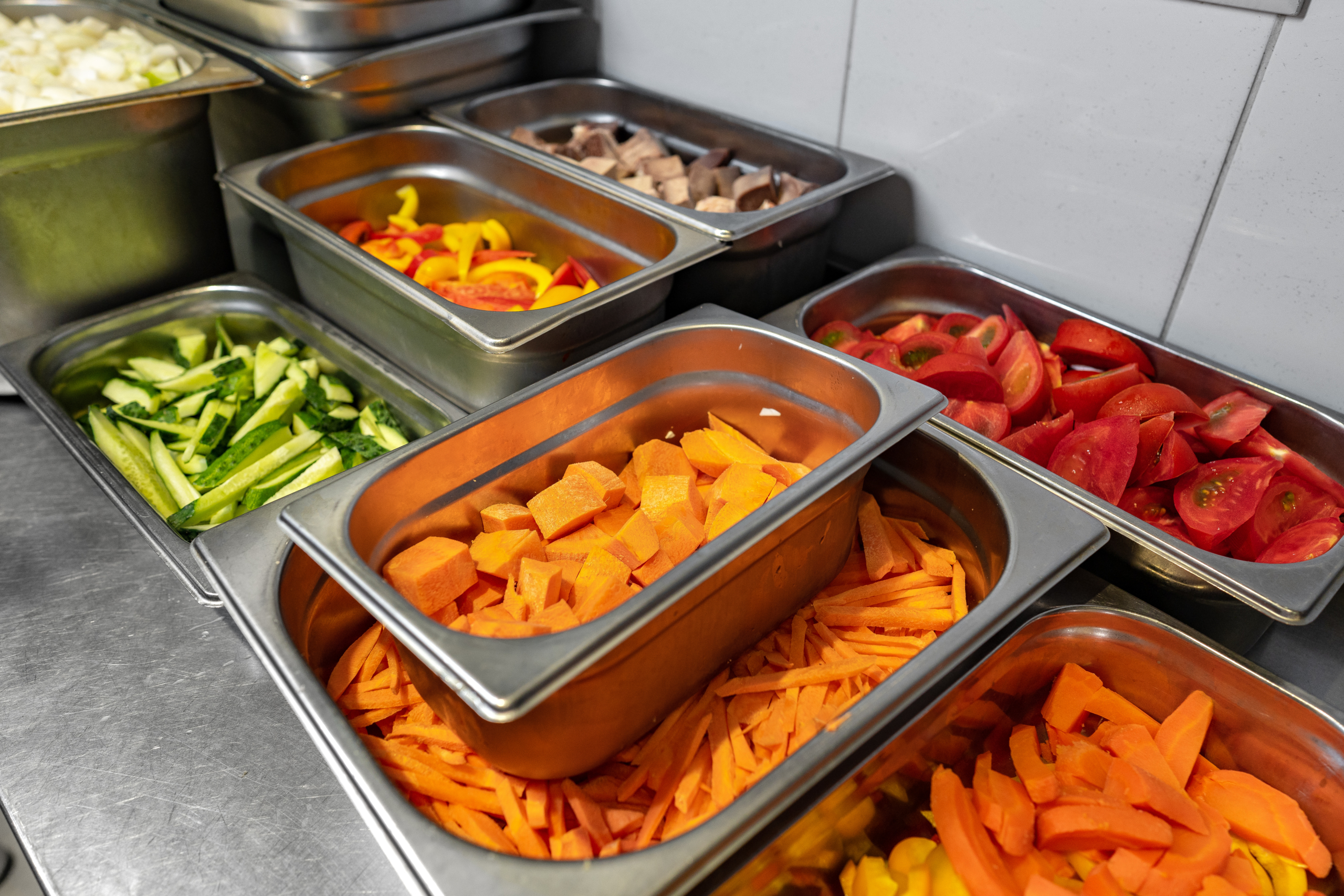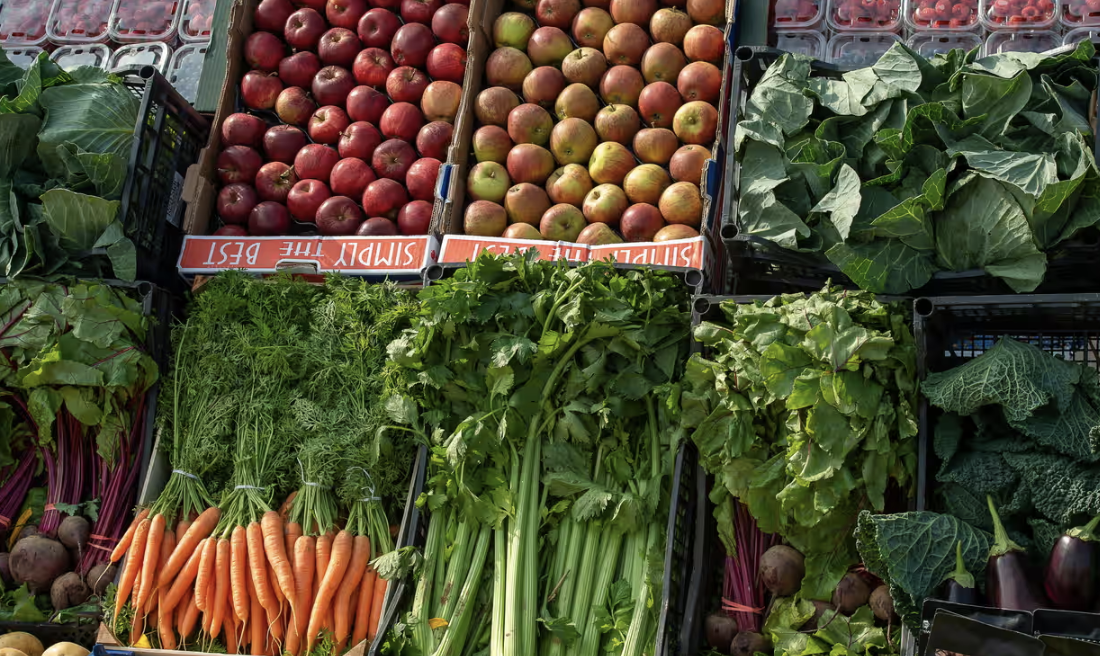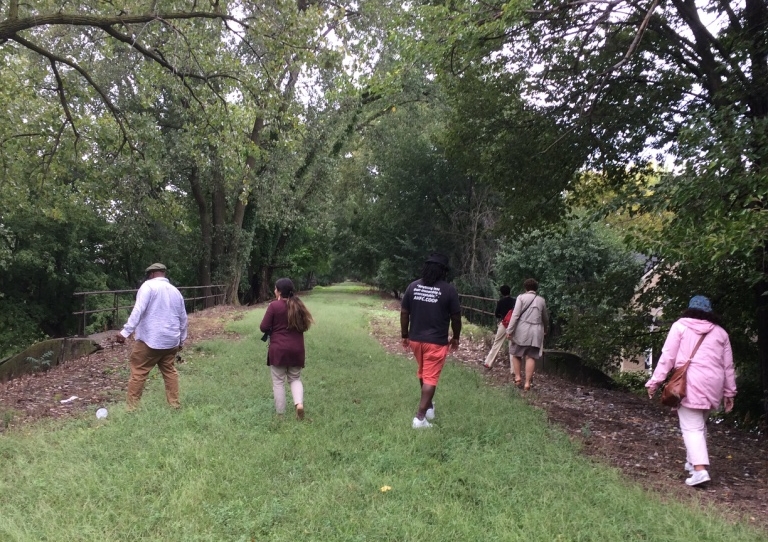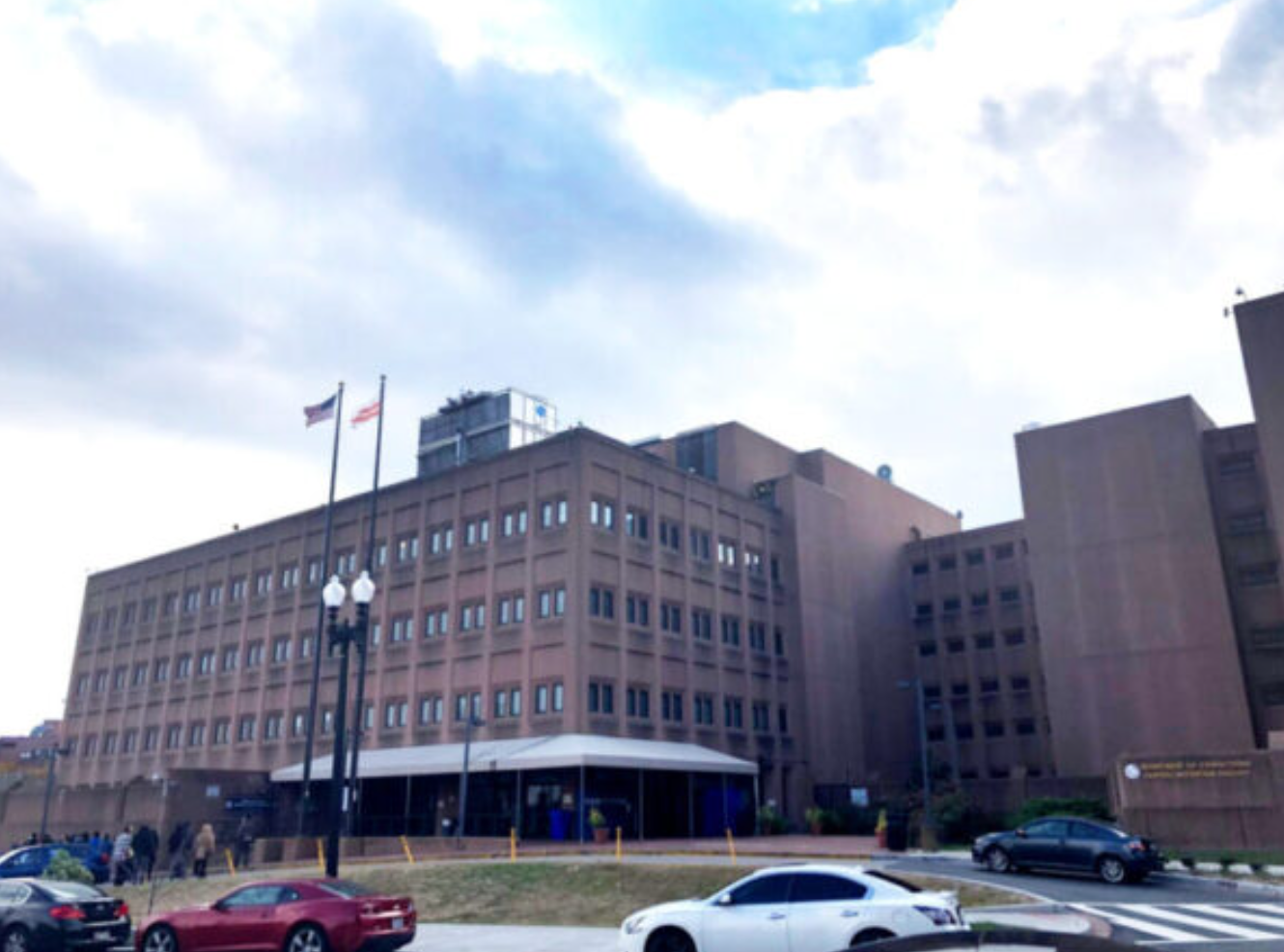Solidarity Message from the Twin Cities Good Food Purchasing Program Coalition
“You have to act as if it were possible to radically transform the world. And you have to do it all the time.” – Angela Y. Davis
Dear friends,
These past few weeks have been a time of great pain and confrontation in our Twin Cities. With the horrific killing of George Floyd, and so many others in our cities’ history, many of us are feeling tremendous anguish and anger at the continued violence inflicted on Black lives: the violence perpetrated by a racist police system; the violence of disinvestment in Black communities; and the violence of not being seen or heard in public policy and decision-making.
We see this violence mirrored in the blatant disregard for millions of (overwhelmingly Black and Brown) food and farm workers, now laboring during a global pandemic, in an industrial food system founded on slavery and stolen land.
While struggling to hold these painful feelings and this understanding of our current reality, we come back to two things. First, the transformation of all of our systems—the food system, policing, etc—must center racial equity and justice work at personal, institutional, and structural levels. Second, if we want to create something we’ve never known—and we would argue we haven’t had just policing or a just food system, at least in the last 500 years—we’re going to have to do things we’ve never done.
We will continue to work to create racial equity in our food system through procurement. We will continue to build with communities exploited by the industrial food system. We will hold spaces and conversations where we can imagine a society rooted in mutual care, dignity and protections for food and farm workers, farmers of color, and economic reparations for Black people, Indigenous people, and people of color.
Reconciling what transformative justice means with the systems we have is hard and complex work, but most things that are truly important are. Without a doubt, we are working to strike that balance between taking time for deep reflection and moving swiftly into action at this critical time. We are here for it!
From Minneapolis and St. Paul, we send our love, solidarity, and appreciation to all of you working for economically and racially just systems. Below are some perspectives from a few of our Twin Cities Coalition partners. We hope you will share with us what you’re feeling and working on during this time as well.
In solidarity for the long haul,
Good Food Purchasing Program – Twin Cities/MN Coalition
Voices from the Twin Cities Coalition:
“As a black queer woman, I feel the fear for my family, friends, and loved ones who have been in direct danger at the hands of police. I worry that no justice will come for George Floyd or any of us, despite our pain, despite our organizing. This is not the first time that my community has experienced or struggled with unacceptable circumstances. We, people of color/ LGBTQIA/ people at intersections, have a legacy of building systems that are better for everyone. I am committed to continuing that and working with allies and accomplices, to find ways to support those who are the closest to racial oppression, to create the solutions.”
–Zoe Hollomon, Organizer, Good Food Purchasing Twin Cities Coalition
“There is a job for everyone in the movement, and it is up to all of us to step up our solidarity with Black leaders during the sustained fight for transformational change. For me, “showing up” looks like a lot of things—talking to family, delivering supplies to those on the frontline, and constantly asking myself, “what is something I can do right now?” whether it’s big or small (it often feels small, and that’s ok). Now is the time to build our stamina for the long haul, to dream about the world we want to live in, and to protect leaders from racist attacks. This movement will be a marathon, not a sprint, and it is up to each of us to keep the momentum going in our own communities.
–Willa Childress, Organizer with Pesticide Action Network North America
“Our food and farming system is rooted in exploitation of people and the natural environment. The burden of that exploitation, that extraction of labor and resources purely for profit without giving a fair measure back has always fallen disproportionately on Indigenous people, people of color, immigrants and their communities. We see that in the wake of the terrible murder of George Floyd. We see how brittle our food system is, especially in communities of color. As we reach out to do what is most important to do right now, provide people whose access to food is tenuous with good food, with food that nourishes their bodies and their communities, we must also take on the tasks of building a new food and farming system that includes everyone, nourishes everyone, restores our natural environment and delivers fair wages and a safe, dignified work environment to everyone working in the food supply chain. Everyone. No exceptions.”
–Terry VanDerPol, Community Based Food Systems, Land Stewardship Project
“The very people who gave the first settlers their way to survive on our home lands in these United States are now the people of poverty and literal starvation. As a Black, Indigenous woman the food system and its injustice has permeated my life on all sides. I am the result of stolen land and stolen labor. We are in the most profound moment in our human story and what our allies and sistren do to create a new world will come out of the acknowledgements of exploited peoples and the justice they deserve. When humanity recognizes its treachery, it can fix it and what solution is found for the most harmed will indeed fortify our human family as a whole, as relatives. Nothing can be healed if anyone is starving, the growers know this and we are fundamental to the fresh ideas on which society can stand in peace and equity.”
–Vera Allen, Grower, Midwest Farmers of Color for Racial Justice
“I love the Twin Cities. There are so many inspiring creatives, makers, farmers, and activists in this city and state doing deeply imaginative and transformative work. I’m also acutely aware of the racial, economic, and food apartheid that run so deep in the history of this place, that is expressed in everything from the violent policing and murder of Black and Brown people, to the erasure of Native culture and history, to the everyday racist microaggressions normalized as ‘Minnesota Nice.’ These past few weeks of protests during a global pandemic have felt like collective affirmation that public health depends on dismantling the culture and structures upholding white supremacy. Otherwise, public health—much like law enforcement, community development, and even democracy—is a white delusion. For white people, we urgently need to practice deep listening and to show up physically, politically, and financially for the movement in a sustained way. I am deeply grateful for the leadership of BIPOC and LGBTQ-led organizations like Black Visions Collective and movements like the Movement for Black Lives for keeping grief and anger in the foreground of our culture and advancing the vision of police abolition and true community health and safety.”
–Tanya Kerssen, Real Food Media
“America’s food system is rooted in exploitation. Multinational corporations exploit farmers by having them sign deals to only sell their hogs or cattle to them while offering barely-profitable margins. These same corporations hire Black and Brown immigrants to do dangerous work in their plants, while offering little to no worker protection and low pay. We can see this currently being played out with Trump enacting the national defense act for meat packing during the COVID-19 pandemic. Profits are being put ahead of Black and Brown workers bodies. I’m happy that the larger labor community is finally standing with Black Lives Matter. George Floyd’s murder and the exploitation of Black and Brown as well as poor white people are connected by racist and classist policy. For far too long American politicians have been able to pass racist policies that keep Black and Brown people marginalized. Labor must stand with the Black community and use our voice to help craft anti-racist policies that lift up every worker.”
–Diana Tastad-Damer, Organizer, UFCW Local 1189
Featured image: George Floyd neighborhood memorial in Minneapolis. Photo by Ruben Garcia


